2017 NAEd/SPENCER POSTDOCTORAL FELLOWS
Allison Atteberry, University of Colorado Boulder

Nationwide Changes in State Teacher Evaluation Policies: Links to Teacher Attitudes, Teacher Retention Rates, and Student Achievement Trends
Andrew Barr, Texas A&M University

How Do Investments in College Pay Off? Lessons from Army Veterans
Christopher Bischof, University of Richmond

Liberal Subjects: Free Blacks and Elementary Education in the British West Indies, 1834-1865
In the years following emancipation in 1834, the British state spent more money on elementary education in the West Indies for free blacks than on elementary education in Britain itself. These years also saw a surge of private donations and a general outpouring of public support for the missionary-led campaign to expand elementary education in the West Indies. The great hope underpinning this enthusiasm was that elementary education would turn former slaves into self-acting liberal subjects who would embrace capitalism and revive the flagging fortunes of the islands that had once been the crown jewels of the British empire.
However, within two decades the state had ceased all funding for West Indian elementary education and widespread support had turned to general hostility. Liberal Subjects explores this phenomenon from the perspective of policymakers, missionaries, free black communities, and the “native teachers” who were so central to both the utopian hopes for what elementary education might accomplish and the eventual backlash against the project. As it does so, it grapples with two questions of enduring importance to the study of education: what generates substantial enthusiasm and financial support for educational projects targeting a poor, non-white population — and what leads to disenchantment and retrenchment?
Erica Bullock, University of Wisconsin-Madison

Tracing Equity Discourses in Mathematics Education
For nearly 40 years, mathematics education has engaged in various efforts to address equity for students who, for various reasons related to identity and demography, are unsuccessful in and disconnected from mathematics. Despite this prolonged attention to equity in scholarship, curriculum, policy, and teacher education, the gap between less privileged students and their more privileged counterparts has been consistent. Many scholars have raised the concern that equity efforts have not yielded the gains that the time, attention, and resources given them would dictate. However, there does not exist an empirical evaluation of equity discourse on a large scale. In this study, I will use discourse tracing—an approach to critical discourse analysis—as a four-phase methodological approach that allows for mapping the proliferation of equity discourses over time. Through this mapping, I will examine the successes and limitations of equity discourse and consider ways in which the field can move toward addressing and eliminating inequities. Data for this study include scholarly literature, policy and curriculum documents, and unstructured interviews with equity-oriented scholars in mathematics education. This tracing will provide a picture of equity in mathematics education over time that can function as a resource in future curriculum and policy discussions within and outside the mathematics education community.
Claudia Cervantes-Soon, Arizona State University

Building Bridges of Black and Brown Solidarity through Dual Language Education
This study examines the potential to develop empowered multilingual/bicultural identities and to build meaningful cross-cultural relationships of solidarity between African Americans and Latinx communities through two-way dual language immersion (TWI). TWI, a highly-proclaimed model of bilingual education integrates speakers from two different language groups – typically English speakers and speakers of a partner language like Spanish – to provide dual-language academic instruction and promote high academic achievement, bilingualism, biliteracy, and cross-cultural competencies for all children involved. Through a critical ethnographic, multiple case study design, the study investigates the attitudes, experiences, and cross-cultural relationships emerging across time among four Black and four Latinx families in a largely segregated working-class urban community in Texas whose children participate in TWI. The study will follow these eight families’ journeys as their children enter pre-kindergarten and continue into elementary school.
By refocusing the attention on minoritized communities in TWI programs this study addresses concerns documented in recent scholarship about the tendency of many TWI programs to cater to the interests of middle-class White English speakers and consequently marginalizing working-class students of color – the focal students for whom bilingual education was created in the United States. The study also fills a gap in the research investigating the potential role of TWI education in bridging Latinx immigrant and African American communities. Ultimately the project and its resulting scholarship seek to push the field of bilingual education toward a more inclusive social-justice oriented vision and the capturing of opportunities for collective agency between historically marginalized groups. The study has strong implications considering current demographics, the present era of emboldened racism, and in the larger context of pervasive segregation, displacement in gentrified areas, and social movements such as Black Lives Matter and for immigrants’ human rights.
Anna Chmielewski, OISE/University of Toronto
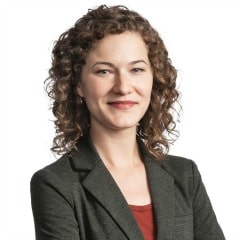
How Do High-Stakes Educational Transitions Affect Socioeconomic Achievement Gaps? An International and Historical Comparison
Chmielewski’s project will examine whether socioeconomic gaps in literacy and numeracy skills observed in childhood persist into adulthood in 18 developed countries. In particular, she is interested in the extent to which international assessments such as the Trends in International Mathematics and Science Study (TIMSS) and the Program for International Student Assessment (PISA)—administered to students around age 14 or 15—fail to capture the effects of unequal institutions that students encounter just after the end of compulsory schooling. For example, students in many Nordic countries encounter a high-stakes educational transition into academic or vocational tracks at age 16. At age 18, US students enter (or not) one of the most stratified higher education systems in the world. Using 21 historical and contemporary international assessments conducted between 1964 and 2009 and three international adult literacy surveys conducted between 1994 and 2011, she matches cohorts by birth year (1950-1990) and parental education level in all 18 countries. This allows a test of the hypothesis that countries with high-stakes transitions into upper secondary or postsecondary education will experience increasing SES achievement gaps between childhood and young adulthood, while continental European countries such as Germany and the Netherlands with high-stakes transitions around age 10 or 12 will experience no further increase in SES achievement gaps.
Jason Ellis, University of British Columbia

Schools and Suburbs: Educating Etobicoke in Metro Toronto, 1945–Present and Beyond
At one time Canada’s inner suburbs like Etobicoke (pronounced \e-ˈtō-bi-ˌkō) were springboards of opportunity. In the first two decades or so after World War II, these communities enabled two investments that helped to vault families into the expanding middle class: the purchase of an affordable house and a quality, free public education for their children. However, in the time since this heyday, inner suburbs have fallen victim to mounting income inequality and crumbling school infrastructure. Both problems are accelerating at the precise moment that the suburbs are becoming more racially diverse than ever. Since few studies of suburban education in Canada exist, it is not clear how suburban school systems and communities are faring with any of these changes.
My project, a mixed-methods, historical case study considers the historical development of one suburban school system in a metropolitan context, as well as that history’s legacy for the immediate present. The project is concerned with the conscious policy decisions that local school officials, suburban planners and private developers, provincial Ministry of Education officials, and a host of others made as they built and managed Etobicoke and its schools over several generations. I trace these decisions, and their causes and effects, through archival sources such as minutes of school board meetings, government policy documents, planning reports, municipal and school board budgets, census data, and other historical sources.
This project takes up three main, interrelated questions: (a) What are the effects of changed suburban demographics and resulting declining enrollment and school closures on Etobicoke’s school infrastructure? (b) What are the historical relationships among suburban schooling, homeownership, opportunity and social mobility, race and immigration, and income inequality in this community? (c) What can be done? Or, what does the study of the past tell policy makers that can help them to make better decisions for Etobicoke and other suburbs in the present?
Avi Feller, University of California, Berkeley

New Tools for Estimating Spillover Effects in Education: Design and Analysis of Two-Stage Trials
Education researchers often assume away social interactions when evaluating new policies or programs, in part because they lack the analytic tools to account for these complications. This project will develop methods that will enable researchers to answer new types of questions on treatment effect spillovers and other interference. The first part will focus on practical tools for designing and analyzing certain randomized trials that can directly measure spillovers. The second part will explore settings where randomization is not possible, developing the tools and assumptions necessary to assess spillovers in this case. While these studies are inherently methodological in nature, the projects are motivated by several real-world evaluations of education policies, including attendance interventions, curriculum interventions, and kindergarten retention. Taken together, these developments will give education researchers a comprehensive set of tools for assessing spillover effects, leading to a better understanding of education policy in an interconnected world.
Nelson Flores, University of Pennsylvania

Radical Neoliberalism: Bilingual Education in the School District of Philadelphia
The late 1960s and early 1970s witnessed efforts in urban areas to take control of schools away from government bureaucracies and put into the hands of the communities of color being served by these schools. On the one end of this fight for community control were activists of color who saw community control as a mechanism for dismantling white supremacy. On the other end were economics who saw community control as a mechanism for promoting a neoliberal vision of school choice. In this project I conduct a racial genealogy of bilingual education in the School District of Philadelphia that seeks to examine how these two visions of community control have been negotiated by Latino community activists. This racial genealogy has both a historical and contemporary component. The historical component examines the efforts of Latino community activists to institutionalize bilingual education during the heyday of radical struggles for community control in the 1970s. The contemporary component examines the ways that contemporary bilingual education activists have appropriated a neoliberal vision of community control in ways that seek to promote aspects of the more radical vision that shaped early advocacy work related to bilingual education through the opening of bilingual charter schools.
Tikia K. Hamilton, The Latin School of Chicago
Originally from Chicago, Hamilton and her five siblings attended public school there. She recently relocated to Chicago to rejoin her extremely large family. and is now a faculty member of the Latin School of Chicago, where she teaches history. She is also the brain behind Triple Ivy Writing and Educational Solutions, where she coaches writers at various stages of their projects.

Making a ‘Model’ System: Race, Education and Politics in the Nation’s Capital before Brown
Making a “Model” System: Race, Education and Politics in the Nation’s Capital before Brown recovers the efforts of black Washingtonians to desegregate public schools and establish the necessary legal and social frameworks for undoing segregation in Washington and throughout the nation. The book also explores the additional routes activists pursued when legal desegregation proved insufficient to the more immediate goal of equality. Seeking the “radical redistribution” of educational resources, activists set upon a path of self-determination that redefined notions of equality and promised to increase black academic and structural opportunity.
The book reveals how, despite the local and federal commitment to “separate, but equal” education in Washington, D.C. was no “model” system. However, the ways in which African-Americans sought to create a more equitable system were reflected in a number of unexamined court cases they launched, by their sustained appeals to the local school board and Congress, and through the often contentious educational campaigns that exposed strategic and ideological differences between black parents, civil rights attorneys, segregationists, educational officials and activist organizations. By foregrounding these efforts, Making a “Model” System upsets traditional frameworks that center on integration as the singular objective of educational activists and helps to provide critical alternatives for addressing present-day inequities in Washington and elsewhere.
Houman Harouni, Harvard University

Math and Anti-math: Numbers, Society and Education
What is the purpose of mathematics education, how has it been formed, and how does it impact the content and shape of curriculum? How do we decide what is relevant and for whom? On the one hand, the conceit of schooling is that mathematics is a subject necessary for labor and citizenship, and on the other hand the complaints regarding the lack of connections between school mathematics and practical life have become proverbial. This research project begins with the thesis that the seemingly intractable problems of mathematics education cannot be sufficiently addressed until we can clearly explain the purpose of the curriculum and how this purpose shapes the experience of teachers and students. This purpose, in turn, must be understood historically, as a process that spans the history of education and involves issues of class, labor, culture and gender. The study begins with historical research, expands its implications to address issues of curriculum design and controversy that have characterized reform efforts, and, last but not least, grounds these findings by examining their impact on practice.
Ozan Jaquette, University of California, Los Angeles

Coming Soon to a Neighborhood Near You? Off-Campus Recruiting by Public Research Universities
Unequal access to college is a persistent barrier to social mobility. Policy discourse often casts access inequality as a student achievement problem (e.g., the “achievement gap”) or a student decision-making problem (e.g., “under-matching”). An alternative explanation is that some universities do not place a high priority on access for low-income students, suggesting that access inequality is an institutional preferences problem. While formal university policies to increase access (e.g., “holistic admissions”) may be public relations efforts, knowing which schools and communities are targeted by university recruiting efforts can yield concrete data about university enrollment preferences. Many universities advertise off-campus recruiting events on Twitter. This project streams data from Twitter to collect data on off-campus recruiting events. Specifically, I collect Tweets from hashtags and handles associated with undergraduate admissions, including Tweets from regional admissions recruiters. The analysis sample consists of 40 public research universities. After cleaning and processing, recruiting data will be merged to secondary data (e.g., high school, community college, and community characteristics) in order to investigate which communities are favored by admissions recruiters and which communities are being ignored.
Khalil Johnson, Wesleyan University

Schooled: The Education of Black and Indigenous People in the United States and Abroad, 1730-1980
Schooled: The Education of Black and Indigenous People in the United States and Abroad, 1730-1980, unravels the threads binding four generations of social reformers, missionaries, philanthropists, activists, and teachers who, since the eighteenth century, used schooling to reconcile the founding cataclysms of the United States––the ongoing presence of Indigenous nations, free black people, and non-white immigrants. During the interwar period in the twentieth century, a pedagogical forged among formerly enslaved African American and captive American Indian students at Hampton Institute in Virginia became integral to British Indirect Rule in colonial Africa and Oceania, eventually circling back to the United States to form the backbone of American Indian education policy during the New Deal. This colonial genealogy of American education offers a substantially different interpretation of twentieth century education and activism.
The different kinds or rights, discipline, and security African Americans and Native Americans experienced in the United States ultimately brought both groups together on reservations after Brown v. Board of Education. Between 1954 and 1974, southern resistance to desegregation displaced an estimated forty thousand African Americans from teaching positions. Bureau of Indian Affairs (BIA) officials, urgently in need of teachers, capitalized on displacement and developed a recruitment policy targeting beleaguered black teachers, offering civil rights protections to beleaguered black teachers in exchange for their participation in eliminating Native sovereignty. As BIA employees, African American educators continued to organize resistance against white supremacy and mounted appeals for universal human rights from new homes in Indian Country, while American Indian nations embarked upon their own campaigns for self-determination.
Nicole Louie, University of Wisconsin-Madison

Empowering teachers, empowering students? Mathematics teacher collaboration and race in Chicago Public Schools
The Chicago P12 Math Collaborative (“the Collaborative”) aims to transform mathematics instruction throughout the Chicago Public Schools. Student-centered, intellectually ambitious teaching that improves outcomes for students of color is at the heart of the Collaborative’s vision. Over the past 5 years, the Collaborative has developed an approach to professional development (PD) that simultaneously asserts this vision and nurtures professional communities in which teachers take the lead in finding ways to enact it.
The purpose of this study is to examine the affordances of the Collaborative’s approach to large-scale, student- and teacher-centered PD, as well as its limitations. On the one hand, school cultures are shifting; as one principal described, “Our whole staff is coming kind of to a threshold where they’re becoming a collaborative staff. They are trusting each other to [give and] take criticism and also to do something positive with it.” Mathematics instruction is shifting as well; in the words of a teacher, “kids [are becoming] the agents of their learning, and kids [are] doing the major thinking.” On the other hand, teachers casually label children “high kids” and “low kids,” and both subtle and not-so-subtle linking of intelligence and race (as it intersects with class, gender, and other social categories) pepper teacher talk. In this project, I therefore investigate two major questions: (1) How do teachers negotiate a shared vision for mathematics instruction in the context of district-led efforts to support ambitious mathematics teaching and learning? and (2) How does educators’ work toward an ambitious vision of mathematics instruction disrupt racial hierarchies in mathematics education? How does it reproduce racial hierarchies?
Darris Means, University of Georgia
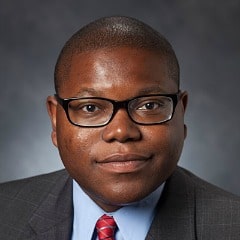
Investigating College Access and Choice for Rural Black Students Using an Anti-Deficit Achievement Framework
The current research on rural Black students has identified and characterized college access and choice challenges experienced by this population of students but less attention has been paid to understanding the critical factors and mechanisms used by rural Black students to navigate their pathways to higher education despite challenges. In this qualitative study, I propose using an anti-deficit achievement approach and community cultural wealth (Harper, 2012; Yosso, 2005) to study the knowledge, skills, abilities, and social networks of rural Black students and how they use these assets to inform their pathways to higher education, while examining how systemic and structural inequities shape their college-going experiences.
I will employ an exploratory case study approach to examine college access and choice for 20 rural Black high school students in their senior year. I will collect data via three interviews and a photo-elicitation project with each student participant over an academic year. Results have the potential to have a school-level influence on how educators and school counselors work with rural Black students to support their access to higher education, and, on a state and federal level, shape college-going curriculum and college access policies that are inclusive of and enhance the educational outcomes of rural Black students.
Kathryn Moeller, Stanford University

The Political Economy of Corporations in Urban Education
Jayanti Owens, Brown University

Exclusionary Discipline: Racial Disparities in How Educators Evaluate and Sanction Misbehavior
School suspension and expulsion predict juvenile detention, educational attainment, earnings, incarceration, and recidivism. Suspension/expulsion impacts children’s development, contributing to cumulative disadvantages for students, families, and communities. Black students face more suspension/expulsion: 20% of Black boys are suspended, compared to 12% of Black girls, 9% of Hispanic boys, and 6% of White boys.
Neither higher incidence of infraction nor lesser responsiveness to restorative discipline practices (like tutoring or counseling) fully accounts for Black boys’ higher suspension/expulsion rates. Implicit bias offers a possible explanation: certain teachers might sanction Black boys more readily, and punitively, than White boys for identical, routine misbehavior. This compelling hypothesis has received scant empirical investigation.
This project: 1) precisely estimates magnitudes of teacher bias in evaluations of identical misbehavior and in recommended sanctions, and; 2) tests an intervention to reduce bias. We deploy a video vignette experiment that manipulates the race/ethnicity and gender of students committing identical misbehavior. Teachers are randomly assigned to student, intervention, and punitive or restorative school discipline environment. Teachers then view and rate videotaped misbehavior and report recommended sanction.
This project quantifies teachers’ implicit bias; the social psychological mechanisms underlying disproportionate suspension/expulsion; and factors magnifying bias. Results will inform promising strategies for teacher training and administrative disciplinary decision-making.
Lindsay Page, University of Pittsburgh

Comprehensive support for college success: An integrative case study of the Dell Scholars Program
Barriers to college success and associated programmatic responses typically are classified into one of several categories, including financial constraints, academic preparedness, and social and informational hurdles. Yet students’ struggles are likely to span multiple domains. If so, then programmatic efforts that address barriers comprehensively rather than in isolation may yield greater improvements to students’ college outcomes. I will inform this hypothesis through a mixed-methods investigation of the Dell Scholars Program, a college success initiative that provides students with scholarship funds as well as ongoing tracking, outreach, support and assistance to address the multifaceted challenges that may hinder college degree attainment. I will produce a book-length volume that paints a complete picture of the impact that the Dell Scholars Program has on students’ college success and how the program operates to engender those outcomes. I will situate my investigation within the broader literature on low-income and first-generation college-goers and will utilize this program as a lens into the challenges these students can experience and the integrated structures that can facilitate their college success. The resulting insights will allow practitioners and policymakers to consider how to provide an appropriate, unified suite of supports to those who need them most.
Nicole Panorkou, Montclair State University

When counting cubes is not enough: Exploring volume measurement dynamically
Although measurement is classified as one of the main domains in the CCSS-M that spans all elementary grades K-5, international comparative studies show that U.S. student performance on measurement is very low. Aiming to resolve students’ difficulties and help them develop a conceptual understanding of volume, this study will explore an innovative way for students to experience volume measurement, what we refer to as Dynamic Measurement (DYME-V). DYME-V engages students in building 3D objects through dynamic experiences of ‘sweeping’ lengths and ‘extruding’ areas, constructing in that way a meaning of volume as a continuous structure that can dynamically change based on three linear measures: length, width and height. I will use a design-based research methodology to design, study and refine dynamic tasks for developing students’ DYME-V through a series of teaching experiments with students. During this process, I will monitor effects on student learning and document changes in student reasoning about volume measurement aiming to construct a learning trajectory of how students’ DYME-V reasoning may progress over time. The DYME-V approach opens up novel avenues toward transforming the learning and teaching of measurement by utilizing technology, which makes this abstract concept significantly more accessible to students.
Natasha Pilkauskas, University of Michigan

Maternal Employment Stability, Intensity, and Quality: Exploring the Links with Children’s School Readiness and Later Educational Outcomes
Gaps in school readiness explain about half of later disparities in school achievement and children from economically disadvantaged backgrounds start the farthest behind (Duncan & Murnane, 2011). To close gaps in school readiness, we need to better understand what factors produce those gaps. One understudied contributing factor to school readiness is the role of maternal employment, and in particular, employment stability, intensity, and quality. In 1975, 39% of mothers with children under 6 were in the labor force, today that figure is 64% (BLS 2016). Among economically disadvantaged groups the increase in maternal employment has been even greater and these mothers often face unstable, low intensity, or poor quality employment (Kalleberg, 2009). By understanding whether particular types of maternal employment put children at a greater risk of not being ready for school, we can consider how early educational policies and interventions, and resource targeting once children are in school, might mitigate educational disparities.
Using unique employment calendar data from the Fragile Families and Child Wellbeing Study, a longitudinal birth cohort study, I will examine the links between the characteristics of maternal employment during early childhood and gaps in school readiness (literacy, math, and behavioral skills). I will explore three questions: (1) Is maternal employment stability, intensity, and quality between birth and age 5 linked with school readiness (at age 5) and later school outcomes (at ages 9 and 15)? (2) Do the associations vary by developmental timing of the employment (e.g. infancy versus toddlerhood)? And (3) are there differences in the associations by marital status, race/ethnicity, or socio-economic status of the mothers? This research will shed light on the factors that contribute to gaps in school readiness between advantaged and disadvantaged children, so that we may better craft policies and interventions to close those gaps.
Luis Poza, San Jose State University

His research investigates language ideologies embodied in teaching practice and education policy, and he has published on parent involvement in the schooling of immigrant youth, on improving curriculum and instructional practices for bilingual students, and on better aligning policy and curriculum to new understandings of bilingualism and second language acquisition. He currently teaches courses about effective instruction of culturally and linguistically diverse students, school equity and education policy, and theories and methods of bilingual education. Beyond academics, Luis is a board member of the Colorado Association for Bilingual Education, served on the Colorado Department of Education’s Accountability Working Group devising the state’s plan for the Every Student Succeeds Act, and is a member of the Working Group on ELL Policy, a coalition of researchers involved in educational policy throughout the country on matters such as ELL classification, evaluation, instruction, and teacher preparation.
Todos juntos/All together: Bilingualism, Bilingual Education, and Integration in a Gentrifying Neighborhood
Current research on the experiences and outcomes for students classified as English learners in dual immersion (DI) bilingual programs is ambivalent. On the one hand, there are consistently benefits in achievement, English language development, attitudes toward schooling, and future earnings when compared to peers in monolingual English instruction (Callahan & Gándara, 2014; Lindholm-Leary & Borsato, 2001; Lindholm-Leary & Hernández, 2011; Umansky & Reardon, 2014). On the other hand, gaps persist between students from historically marginalized groups (English Learners, students in poverty, students of color) and their more affluent white peers in such programs, and qualitative research has shown that prevalent social hierarchies are reified in interactions among students and in school-family relationships (Cervantes-Soon, 2014; Palmer, 2009; Scanlan & Palmer, 2009). DI programs are, nevertheless, increasingly popular in the US, and this growth in the number of programs coincides with a trend toward re-urbanization among middle class families and young professionals. Emerging research on gentrification shows similar conflicts, as the benefits of additional financial resources and social capital in a school are juxtaposed to tensions and power disparities among the established and newly arriving gentry families, including ultimately the displacement of the former from the community (Posey-Maddox, Kimelberg, & Cucchiara, 2014). The proposed study would undertake a social design methodology (Gutiérrez & Vossoughi, 2010) to jointly inquire with a school community the challenges and opportunities of a bilingual program in a gentrifying neighborhood in hopes that community change could be leveraged to build upon existing strengths and foster meaningful integration of students and families across ethnic, linguistic, and class backgrounds.
Mezna Qato, University of Cambridge
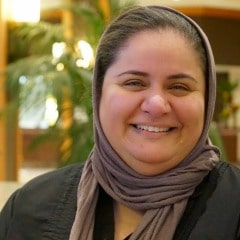
Education in Exile: Palestinians and the Hashemite Regime, 1948-1967
After the 1948 war, and the dispossession of the majority of Palestinians into Jordanian territory, an educational infrastructure was developed to accommodate refugee students. This project unpacks the consequences of education as crisis management and in so doing reveals political and social ambivalences by refugee youth as they are subjected to state attempts to de-nationalise them though they remain vested in a project of self-determination.
With archival materials and oral histories, I examine how, despite intense state and international pressures, education came to be understood, framed, and enacted as a potentially emancipatory exercise by refugees. I trace evolving curriculum debates, pedagogical practices, educational built environments, and show how they came to embody the high stakes of representational power and anti-colonial possibility. However, the work weaves these debates and practices by students and teachers with those of UN and government bureaucrats, international development interlocutors, and intelligence officials and inspectors, and in so doing challenges nationalist teleology and triumphalism by grounding educational potential in refugee desires for class mobility, employment, as well as emancipation. Through this work, I aim to offer a history of refugee schooling lived as a form of pedagogical fugitivity; one that seeks to make a way out from under a corrosive dyad of collective political claims versus socio-economic aspiration.
Emily Rauscher, Brown University

When Does Money Matter? School Funding and Inequality of Educational Achievement
School funding decreased drastically following the 2008 recession, but we know little about how these cuts may affect K-12 achievement gaps. This study moves beyond the long-standing debate about whether funding matters to examine whether and in which contexts particular types of funding could reduce racial and ethnic achievement gaps. Drawing on data from the Stanford Education Data Archive, Census Finance Survey, Common Core of Data, and California Elections Data Archive, this study will create two district-level longitudinal data sets and apply two identification strategies. First, school district and year fixed effects will be used to estimate the relationship between changes in funding and achievement gaps within the same district from 2008 to 2013. Second, regression discontinuity analyses of 1995-2013 California school ballot measures will approach a causal estimate of the effects of school facilities funding on racial achievement gaps. The goal is to identify whether certain funding types or distribution mechanisms could reduce racial inequality of educational achievement.
Deondra Rose, Duke University

Educating Black Elites: HBCUs, Public Policy, and the Redistribution of American Political Power
Since 1837, when the Institute for Colored Youth was established in Pennsylvania, Historically Black Colleges and Universities (HBCUs) have made valuable contributions to higher education in the United States. Until the mid-twentieth century, HBCUs represented the principal pathway to higher educational opportunity for African Americans. As a result, they have provided an important source of empowerment for black individuals, their families, and their communities. HBCUs have also played a pivotal role in educating African American leaders, including the vanguard of the U.S. civil rights movement and a disproportionate share of black political elites. As such, HBCUs have played an important role in shaping the distribution of political power in the United States. Although scholars have recognized the significance of HBCUs for providing black Americans with higher educational opportunity through much of the nation’s history, we have yet to fully consider the role that policymakers have played in shaping their development or the role that HBCUs have played in the redistribution of political power.
This project investigates two central research questions: (1) What role has the government played in the development of historically black colleges and universities? and (2) How has government support for HBCUs shaped the distribution of political power in the United States? To answer these questions, I will use a mixed methods research approach: first, I will use historical analysis to examine the political development of HBCUs, paying particular attention to the role that the government has played in shaping their development and, thus, extending higher educational opportunity—and a pathway toward first-class citizenship—to African Americans. Second, I will examine the feedback effects of government support for HBCUs on political engagement by conducting a survey of black college graduates that examines higher educational experiences (at HBCUs and non-HBCUs), as well as measures of political and civil engagement. To investigate whether HBCU attendance plays a role in driving disproportionately high levels of political engagement, I will conduct in-depth interviews with black elected officials. If the survey data suggest that HBCU attendance is significantly associated with high levels of political engagement, these in-depth interviews could help to uncover the mechanisms by which this relationship operates. Taken together, these techniques will provide fresh insight into our understanding of the politics of HBCUs and could provide valuable lessons for how higher educational institutions can foster high levels of political and civic engagement among citizens who have been traditionally underrepresented in politics.
Crystal Sanders, Pennsylvania State University

Deferred Dreams and Exiled Citizens: Black Graduate Education in the Age of Jim Crow
Deferred Dreams and Exiled Citizens will be the first book-length study of African Americans’ efforts to secure graduate education during the age of Jim Crow. While many scholars of black education have written about African Americans’ quest for elementary, secondary, and baccalaureate education, black efforts to secure graduate and professional education have been largely overlooked. For most of the twentieth century, southern and border state legislatures did not provide graduate education for African Americans. Rather than create graduate and professional programs at black colleges or desegregate white colleges, state lawmakers appropriated tax dollars to send black citizens out-of-state for graduate training. Missouri began this arrangement in 1921. By 1948, North Carolina, South Carolina, Arkansas, Tennessee, Virginia, Mississippi, Florida, Alabama, Georgia, Louisiana, Maryland, Kentucky, Oklahoma, Texas, and West Virginia had also created Jim Crow scholarship programs and exported black scholars to preserve segregation. Most of these states continued their scholarship programs until the 1960s defying the United States Supreme Court decision in Missouri ex rel. Gaines v. Canada (1938) where justices decreed that states had a responsibility to offer white and black citizens in-state education. Usually, the Jim Crow scholarships covered the differential between the cost of pursuing a course of study offered at the state’s white institutions and the cost of pursuing the same program at the out-of-state school that the black student attended. Some states also paid travel expenses. Most students receiving funds studied at institutions in the North, Midwest, or West and many never returned to the South.
Niral Shah, Michigan State University

Reducing the Impact of Implicit Racial and Gender Bias on Mathematics Classroom Discourse
This mixed methods study investigates how teachers make sense of and utilize quantitative data on participation patterns and qualitative data on students’ subjective perceptions of implicit bias. Using an iterative design, analysis will focus on how teachers improve their practice through cycles of data-driven reflection. The study is poised to make two significant contributions. First, it will document equitable teaching practices. And second, it will produce a model for working with teachers on the sensitive topic of implicit bias. This model aims to facilitate larger-scale professional development efforts to make classrooms more equitable.
Amy Stornaiuolo, University of Pennsylvania

Developing Data Literacy with Adolescents: Supporting Youth as Authors, Architects, and Interpreters of Data
This study explores how young people develop data literacy, the capacity to build and communicate meaning through representations of information. While data literacy has emerged as a crucial digital literacy skill in our networked culture, it has not been widely studied in educational research, particularly the challenge of supporting young people in using data to create actionable knowledge. Through a yearlong ethnographic investigation into how students develop data literacy in a technology-infused and design-oriented high school, the study will highlight the literacy dimensions of data literacy, drawing particular attention to the historical, cultural, social, and political dimensions of how data is used to produce and value knowledge. It will trace how students use data for different purposes – to generate knowledge, to craft alternative narratives challenging mainstream discourses, to interrogate what counts as data, or to turn data toward civic action. A major contribution of the research project is its focus on developing the data literacy construct based on youth perspectives.
Amanda Tachine, American Indian College Fund
Amanda R. Tachine is Navajo from Ganado, Arizona. She is Náneesht’ézhí Táchii’nii (Zuni Red Running into Water clan) born for Tl’izilani (Many Goats clan). Her maternal grandfather’s clan is Tábaahí (Water’s Edge) and her paternal grandfather’s clan is Ashiihi (Salt). She is a Research and Evaluation Associate at American Indian College Fund as well as a Visiting Researcher/Scholar at Arizona State University’s Center for Indian Education. She weaves conceptual and theoretical threads that examine college access & transition, sense of belonging, and qualitative methodology – consistently through an Indigenous ways of knowing lens. Specifically, she focuses attention on Indigenous students’ experiences and the systems and structures that inhibits and supports educational opportunities for them. Her work has been published in the Journal of Higher Education and the International Review of Qualitative Research. Amanda was recognized by President Barack Obama with the White House Champions of Change: Young Women Empowering Communities award for her instrumental work in creating University of Arizona’s Native (SOAR) Student Outreach for Access and Resiliency, a multi-generation mentoring program to increase college access among Native youth and families. In addition, her dissertation titled, Monsters and Weapons: Navajo students’ stories on their journeys to college was awarded the 2016 American Educational Research Association Division J Dissertation of the Year as well as received Honorable Mention recognition from the International Congress Qualitative Inquiry Dissertation Award. She has published thought pieces in the Huffington Post, Al Jazeera and The Hill through her role as a Public Voices Op-Ed Fellow where she advances ideas regarding discriminatory actions, educational policies, and inspirational movements.

Monsters and Weapons: Navajo Students’ College Access and Transition Stories
The 2014 United States White House reported that, “Native youth and Native education are in a state of emergency” by detailing the history and current state of Native education: Native youth are the least likely to graduate from high school, enter into college, and attain a college degree when compared to other racial/ethnic populations (United States Executive Office of the President, 2014, p. 19). The report is significant because broader society and higher education researchers frequently historicize Native peoples, relegate us to a footnote under an “asterisk” justifying our exclusion from studies because of low numbers, or completely ignore us, prompting scholars to move from the language of “underrepresented” to “invisible” (Brayboy, 2004). Thus, Native student experiences are often nonexistent within educational conversations. Indigenous education scholars call upon researchers to “move beyond the asterisk” by seeking ways to include Native students in higher education research (Shotton, Lowe, & Waterman, 2013).
This research centers attention on the factors shaping Native, specifically Navajo, students’ entrance into and transition during their first year in college. An Indigenous methodology, grounded in a Navajo/Diné, perspective is used to understand the barriers students face and the strengths used to overcome them. Through the assertion of the Navajo traditional oral story of the Twin Warriors, this study will focus on the strength-based interconnected worldview, referred to as “weapons,” where culture and ways of knowing (such as spirituality and generational teachings) helped Navajo students to overcome the “monsters,” referred as the contextual barriers (such as financial hardship) that inhibit their college transition journey. A goal of this study is to extend the critical strand of research on college access and transition among Native students. Viewing students’ stories from a strength-based lens and context-specific approach can transform conversations of college access and transition by illuminating a more inclusive pathway that opens opportunities to diversify college campuses and enhance equity in higher education.
Erica Turner, University of Wisconsin-Madison
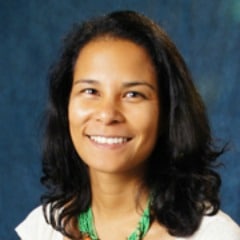
Embracing Complexity: The Diverse Efforts to Address Racial Inequity in One School District
After decades of school choice and testing policies, educators, activists, and scholars are turning to community engagement strategies to advance racial equity in schools. This puts a spotlight on the challenges and promise of diverse stakeholders working towards policy change. The proposed study examines how school and civic actors in Madison, Wisconsin make sense of racial inequity, envision new possibilities, and pursue interrelated efforts to advance policy change as they confront persistent racial inequity. Using new socio-cultural theories of policy, contemporary theories of race, and a comparative case study design, I examine race talk in policy deliberation across three issues–disparities in school discipline, access to advanced course-taking, and emergent bilinguals’ education–which engage different racialized groups and constellations of discourses, strategies, processes, and resources. The study furthers knowledge of how complex policy ecologies contribute to, complicate, or undermine equity in school district policymaking; enriches our conceptualization of education problems and aims, equity, and policy strategies; and provides new theoretical understandings of policy as a racialized, socio-cultural phenomenon. In examining Madison, a best-case situation of diverse citizen involvement, this study points to the possibilities for more democratic, effective and just policy, a necessity in our increasingly racially diverse country.
Lindsay Weixler, Tulane University
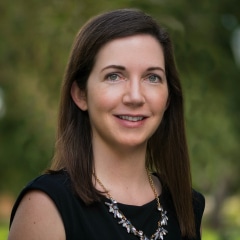
The Impact of Centralized Enrollment and Public Quality Ratings on Disadvantaged Families’ Access to High-Quality Early Childhood Education
Quality Rating and Improvement Systems (QRISs) have become a nearly universal approach to quality improvement in early childhood education (ECE). These efforts are necessary, as ECE program quality is both important for child outcomes and highly variable (Bassok et al., 2016; Yoshikawa et al., 2013). However, to date we know very little about the effectiveness of QRISs in improving parents’ access to high-quality ECE. This project will fill this gap by evaluating the effect of Louisiana’s recently updated ECE policy and QRIS on parents’ access to high-quality ECE in New Orleans.
In 2012, Louisiana mandated that each locality centralize enrollment for all publicly funded programs and evaluate them using the Classroom Assessment Scoring System (CLASS). As a result, New Orleans families can now apply for up to eight programs in rank order using one application. Beginning in 2018, programs’ CLASS-based quality ratings will be listed on their profiles in the application system. I will examine (1) the impact of the centralized enrollment system on families’ access to publicly funded programs, and (2) the impact of public quality ratings on parents’ demand for high-quality programs. This study will be the first to analyze the effect of a state policy on families’ access to ECE and to use individual-level data to examine the effect of public quality ratings on parents’ ECE program decisions.
